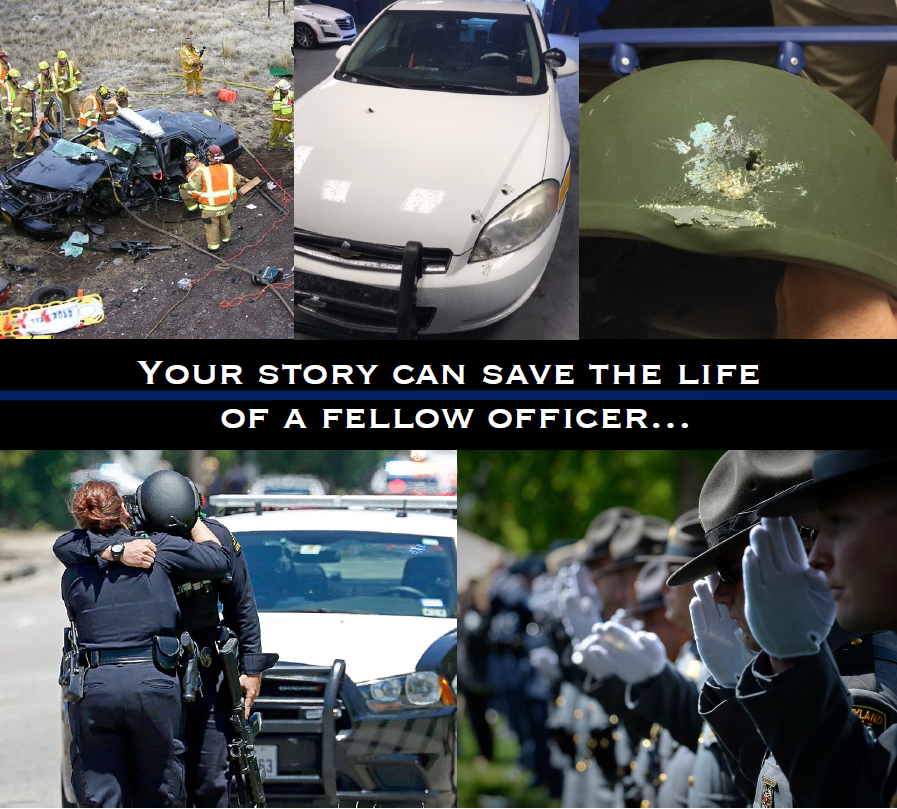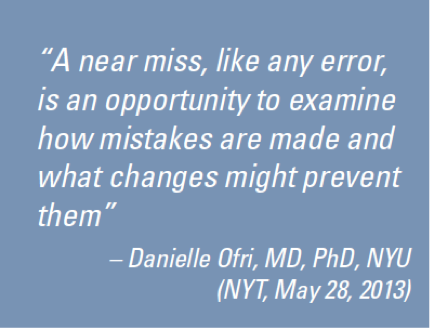Law Enforcement Officer (LEO) Near Miss is a voluntary, non-disciplinary officer safety initiative that enables law enforcement personnel to read about and anonymously share stories of near misses, often referred to as “close calls.” Each of these stories offers valuable lessons learned and reminders that, if shared with the law enforcement community as a whole, can be incorporated into training and policy development to improve officer safety.
A near miss is defined as any situation in which a law enforcement officer could have been seriously injured or killed, but harm or death was averted. Near misses can occur at any time during the performance of law enforcement duties and oftentimes include contributing factors like hazardous conditions, subjects with concealed weapons, failed equipment, or lapses in situational awareness. Regardless of the situation, they provide lessons learned, and reporting a near miss allows fellow officers to learn from these incidents so they can go home to their loved ones after every shift. Officers often share their near misses with their close friends, but rarely are these stories, and the lessons learned from them, shared with officers across the country. LEO Near Miss provides the platform for officers to do so.

Simply put, there are significantly more near misses than serious injuries or fatalities. It is evident in industries that collect near-miss data (aviation, fire/EMS services, health care/medicine, mining, nuclear power operations, and the military) that for every major incident, injury, or fatality, there are hundreds of near misses that could be analyzed and used in training and risk management to prevent a tragedy.
LEO Near Miss is strictly for promoting peer learning and enhancing officer safety and wellness. Officers can visit the website or download the free smartphone app (LEO Near Miss), read the lessons learned from near misses experienced by other officers, and anonymously share their own near-miss experiences. Near-miss stories submitted to LEO Near Miss go directly to the National Police Foundation, an independent, non-profit research and training organization that manages the system in partnership with other organizations like Below 100, the National Law Enforcement Officers Memorial Fund, the National Tactical Officers Association, and the International Association of Chiefs of Police. Each story received undergoes a two-stage review process by current and former law enforcement to remove all personally identifying information (ensuring anonymity when published) and to highlight important takeaways for improving officer safety. Once a story has finished the review process (about 7-10 days), any personally identifying information is permanently deleted from our records, and the story is made available for vetted law enforcement personnel to read on the LEO Near Miss website and smartphone app. Furthermore, no IP addresses are ever tracked and linked to any stories submitted to the system, and officers do not need to log in to submit a story.
In addition to providing lessons learned, the LEO Near Miss system will identify and report on the underlying risk factors and characteristics that are contributing to near-miss incidents. This anonymized information will be made available to the law enforcement community to improve training, equipment, policies, procedures, and tactics in order to reduce risk, improve officer safety, and save lives.
Please support this critical officer safety initiative by reading and sharing the near-miss stories and lessons learned that your fellow officers have shared, and please consider sharing your own near-miss experiences here or through our free smartphone app. The five minutes you take to share your story can improve future policy and training and could save the life of a brother or sister in blue.
If your agency is interested in participating in this critical officer safety initiative, please visit our Become a Participating Agency page.
A near miss is a situation in which a law enforcement officer could have been seriously injured or killed, but harm or death was averted.
 How can your near miss help other law enforcement personnel?
How can your near miss help other law enforcement personnel?
If you share an incident in which you escaped a serious injury or death, what you learned from that experience can help protect other officers who may encounter a similar situation.
As we have learned in aviation, medicine, and other high-risk industries, sharing near misses is critical in identifying and addressing policy, training, and equipment deficiencies before an officer is hurt or killed.
